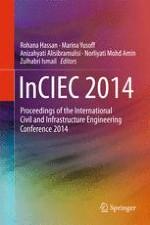2015 | OriginalPaper | Buchkapitel
Evaluating Importance Level of Buildability Factors in Cambodian Construction Projects
verfasst von : Heng Ly, Tanit Tongthong, Vachara Peansupap
Erschienen in: InCIEC 2014
Verlag: Springer Singapore
Aktivieren Sie unsere intelligente Suche, um passende Fachinhalte oder Patente zu finden.
Wählen Sie Textabschnitte aus um mit Künstlicher Intelligenz passenden Patente zu finden. powered by
Markieren Sie Textabschnitte, um KI-gestützt weitere passende Inhalte zu finden. powered by
